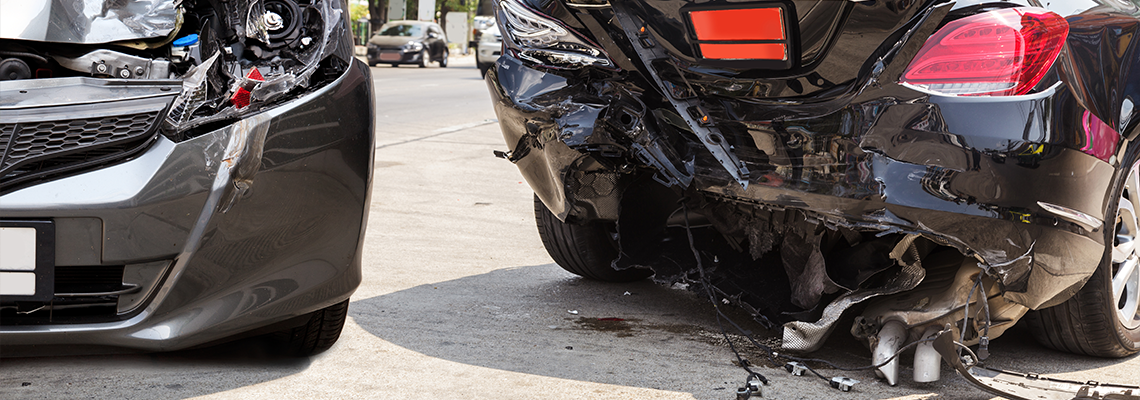
Common Misconceptions About Car Accident Claims
Under Hawaii’s personal injury laws, individuals injured in car accidents may be entitled to recover damages through injury claims. There are many collective popular notions and misinformation surrounding the traffic accident claims process in the Aloha State. Because of this, getting experience guidance from a skilled Hawaii personal injury attorney is imperative when seeking damages to receive the maximum available compensation and avoid irreversible errors.
At Ranken & Shnider, Attorneys at Law, we’re committed to offering compassionate representation, guidance, and support to victims of car accidents in their injury claims. Our trusted legal team can investigate the details of your case, help clarify the misconceptions surrounding car accident claims, and enlighten you about your possible legal options to seek damages. We’re proud to represent clients in Maui, Hawaii, and surrounding areas across the state.
Common Car Accident Myths and Misconceptions in Hawaii
According to statistics from the Hawaii Department of Transportation (HDOT), there were about 537 serious injuries in traffic crashes statewide in 2019. There are many false assumptions and misconceptions surrounding the Hawaii car accident claims process. This usually makes it challenging for accident victims to navigate the system and recover their deserved compensation.
Being able to differentiate facts from fiction and knowing what to expect can help make your personal injury case feel more manageable. Here are some common misconceptions and myths about car accident claims in Hawaii and a brief explanation of why they’re not true:
Misconception #1: It’s Always the At-Fault Driver’s Insurance That Pays for Damages/Injuries
This is a common misconception that isn’t essentially true. The state of Hawaii follows the no-fault auto insurance system. According to the system, victims of car accidents will turn to their own insurance provider – their Personal Injury Protection (PIP) policy – to recover compensation for medical expenses, lost wages, and other accident-related financial losses, up to the PIP coverage limits, regardless of the at-fault party.
Misconception #2: Since Hawaii Is a No-Fault Insurance State, I Can’t Seek compensation From the At-Fault Driver
You may be eligible to opt-out of the no-fault insurance system and pursue a liability claim or file a lawsuit against the at-fault party if your auto accident injuries meet any of these thresholds:
Your injuries exceed your PIP coverage limits.
You suffered a serious bodily injury, such as serious disfigurement, permanent disfigurement, or significant permanent loss of use of a body part or function.
A person died in an auto accident.
Misconception #3: If the Accident Is Minor, It’s Not Necessary to File a Police Report
This is another common misconception. According to Hawaii law, if an auto accident results in injury to a person, death of a person, or property damage of $3,000 or more, you must report the incident to the police as soon as possible. Whether the accident was minor or severe, it is important to file a report to adhere to state laws and for proper documentation. Also, the police report will serve as evidence when seeking your accident claims.
Misconception #4: I Was Partially At-Fault for the Accident, so I Can’t File a Personal Injury Claim
This is not true. Hawaii operates using the “modified comparative fault” system, with a 51% bar. According to the rule, a car accident victim may only recover damage if the other party was mostly (51% or more) responsible for their injuries or the accident.
However, the amount of financial compensation that may be recovered will be reduced by the plaintiff’s degree of fault. Hence, under Hawaii's modified comparative fault principle, the accident victim will be barred completely from seeking damages if they were found to be mostly at fault for the accident or their injuries.
Misconception #5: I Don’t Need to Hire an Attorney to File a Personal Injury Claim
Hiring a skilled attorney to help file your personal injury claim can never be overemphasized. Due to your limited or lack of experience and knowledge about Hawaii personal injury laws, filing your accident claims can be difficult and challenging.
Additionally, an experienced car accident attorney can help gather necessary documentation and evidence, file your injury claims, and handle all communications and negotiations with the insurance carrier. Depending on your unique circumstances, a lawyer can fight for your best interests and help you seek the maximum possible damages for your injuries.
Look to Experienced Legal Representation Today
An auto accident can result in minor or severe injuries, hospitalization, being unable to work, or sometimes, death. While you may be entitled to seek compensation for your injuries and damages, it is still important to know what to expect to avoid potential issues in your accident claims. An experienced personal injury attorney can explore your possible legal options and advocate for your best interests.
With several decades of combined experience, our attorneys have the diligence, resources, and experience to protect the legal rights of car accident victims and their families. With our in-depth legal understanding, we can guide you through the overly-complex claims process and help you seek your rightful compensation. Above all, our legal team will keep fighting for your best interests and improve your chances of achieving the best possible outcome in your personal injury claims.
Contact Ranken & Shnider, Attorneys at Law today to schedule a simple case assessment with reliable car accident attorneys. Our skilled legal team can offer you the highly-personalized legal counsel, vigorous representation, and dedicated support you need in your injury claims. We’re proud to represent clients in Maui and surrounding areas across the state of Hawaii.
